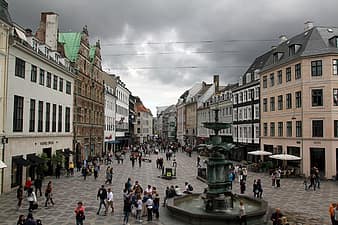Danes do not like a long commute, and this is seriously impacting recruitment in the country, according to a recent survey of the 445 member companies of Dansk Industri (DI).
Some 27 percent find it more difficult to recruit people who live more than a 30-minute commute from their workplace compared to just five years ago. Only 6 percent said that it has become easier. The rest responded that no change has taken place or that they do not know.
DI deputy head Kent Damsgaard said that one explanation may be that the job market has improved and people are able to find a job closer to home.
“It is very positive that we have created more than 100,000 new jobs in recent years and that job opportunities have vastly improved,” he said.
“But we still have to be very aware that we should apply for jobs that best match our skills – even if it means a slightly longer commute.”
Small towns suffer most
Damsgaard said that it is better for Denmark if people are willing to commute to the job they do best and “we have an infrastructure in place that makes this possible”.
The survey showed that the problems of attracting employees is even more challenging away from the larger urban areas.
“When many businesses are competing for manpower, willingness to commute very far declines, and that greatly affects many businesses that are located far from major cities,” Damsgaard added.
Odense – so close but yet so far
Fyns Smedejerns Trapper is located in Broby, a town just 20 km from the centre of Odense, and yet the company finds it increasingly difficult to attract new employees living in the capital of Funen.
“Nothing happens when we look for new employees. It is becoming an increasingly serious problem,” said Fyns Smedejerns Trapper managing director Alan Holm.
“Getting people to come out here is difficult. When jobs are available in Odense, many just stay close to where they live.”
According to Danmarks Statistik, employed men commute an average of 23.9 km a day while women commute 16.7 km.













